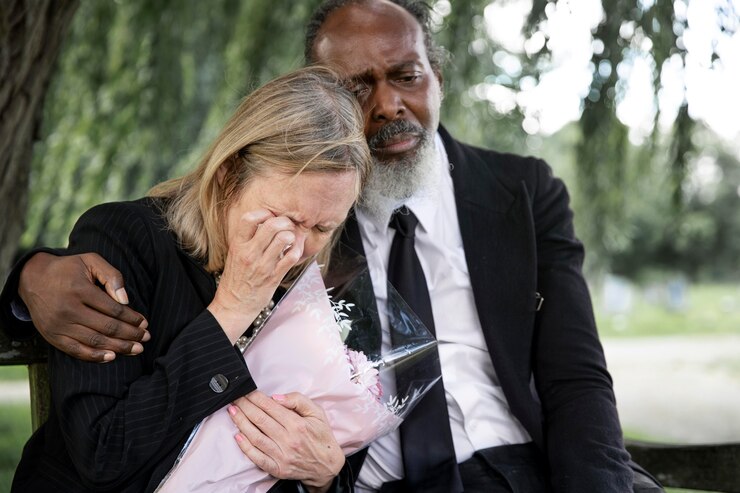Losing a loved one is one of life’s most difficult challenges. The process of grieving and healing after a loss, known as bereavement, is deeply personal and unique to each individual. Grief can be overwhelming, encompassing a wide range of emotions, and it’s important to find healthy ways to cope and navigate through this difficult time. In this article, we will explore some strategies for coping with bereavement and grief, with the aim of promoting healing and finding solace in the midst of loss.
- Allow Yourself to Grieve: Grief is a natural response to loss, and it’s essential to give yourself permission to grieve. Allow yourself to experience the wide range of emotions that come with loss, including sadness, anger, guilt, and confusion. Understand that grief is a process that takes time, and there is no “right” or “wrong” way to grieve.
- Seek Support: Reach out to your support system during this challenging time. Share your feelings and thoughts with trusted friends, family members, or a support group. Connecting with others who have experienced a similar loss can provide comfort, understanding, and validation. Don’t hesitate to seek professional help from a therapist or counselor if needed.
- Take Care of Yourself: Self-care is crucial during the grieving process. Pay attention to your physical and emotional needs. Make sure to get enough rest, eat nourishing meals, and engage in regular physical activity. Avoid self-medicating with substances such as alcohol or drugs, as they can hinder the healing process. Instead, focus on activities that bring you comfort and solace, such as journaling, practicing mindfulness, or engaging in hobbies.
- Honor and Remember: Find meaningful ways to honor and remember your loved one. Create rituals or traditions that allow you to reflect on their life and legacy. This could include lighting a candle, visiting a special place, or creating a memory box with mementos. Celebrating their life can bring a sense of connection and provide moments of healing.
- Be Patient with Yourself: Grieving is a non-linear process, and healing takes time. Be patient with yourself and acknowledge that healing doesn’t happen overnight. Allow yourself to heal at your own pace and be compassionate toward yourself during moments of grief and sadness. It’s okay to have good days and bad days. Give yourself permission to feel and be gentle with yourself as you navigate the waves of emotions.
- Seek Professional Help: If you find that your grief is overwhelming and interfering with your daily life, consider seeking professional help. A therapist or grief counselor can provide support, guidance, and coping strategies specific to your needs. They can help you navigate the complexities of grief and provide a safe space to process your emotions.
- Practice Self-Compassion: Be kind and gentle with yourself throughout the grieving process. Practice self-compassion by offering yourself love, understanding, and forgiveness. Treat yourself with the same kindness and compassion you would offer to a dear friend going through a difficult time.
- Embrace the Healing Journey: Healing from grief doesn’t mean forgetting your loved one or moving on. It’s about finding a new way to carry their memory with you and rebuilding your life with their spirit in your heart. Embrace the healing journey as an opportunity for personal growth and self-discovery. Allow yourself to find joy and meaning in life while still honoring the love you shared with your loved one.
Coping with bereavement and grief is a deeply personal experience, and there is no “right” way to heal. Each individual’s journey is unique, and it’s important to find what works best for you. Remember, healing takes time, and it’s okay to seek support and take care of yourself along the way.










